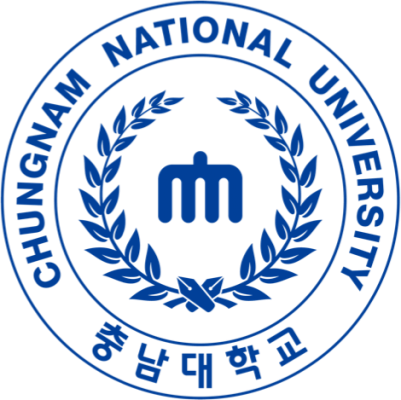
Chungnam National University
Green Education Ranking
#763
About Chungnam National University
Founded in 1952, CNU has been cultivating the best minds in Korea under the educational motto of "Creativity, Development, and Service to the Community" during its proud of 68 years. It has also been actively performing a key role for national development as the most prestigious university in the central region of Korea, through the efforts of its prominent faculty members. Further progress will be achieved through their on-going active research and educational capabilities, in addition to academic-industrial cooperation. Korea has formed a new administrative center in Sejong Special Administration City around which are all gathered Naepo New Town, Daedeok R&D Special Zone, the International Science Business Belt, the Daejeon Government Complex, and the Headquarters of the Korean Army, Navy, and Air Force. Placed right at the heart of this cluster of the national facilities, CNU has been substantially contributing to the creation of a better and brighter future for national competitiveness.
About World Green University Ranking
World
Green University Ranking 2024 is a
scholarly acknowledgment of educational
institutions standing at the forefront of
Education for Sustainable Development (ESD) and
leading the Green Education Transformation
(Education 6.0).
World Green University Ranking classifies
universities based on the six pillars of the
Holistic Green Education Framework, including
leadership governance, curriculum, innovation,
facilities, human capital, and community
partnerships.
The methodology employed in our Green Education Ranking is designed relying on the six pillars of the Holistic Green Education Framework. Each pillar contributes to the institution’s overall score, with a carefully assigned weight reflecting its significance in fostering sustainability. The total weight of the six pillars collectively amounts to 100%, signifying a balanced evaluation across critical dimensions of Green Education. Within each pillar, various standards are carefully assessed, with weights ranging between 1 and 2, emphasizing the varying importance of each criterion. This nuanced approach ensures a holistic evaluation and offers an insightful measure of universities commitment to Green Education Transformation (Education 6.0).
| # | Six Pillars of Green Education Framework (6Gs). | Weight |
|---|---|---|
| 1 | Green Educational Leadership | 14% |
| 2 | Green Curriculum | 17% |
| 3 | Green Innovation and Research | 19% |
| 4 | Green Facilities | 15% |
| 5 | Green Human Capital | 19% |
| 6 | Green Communities | 16% |
| Total | 100% |

